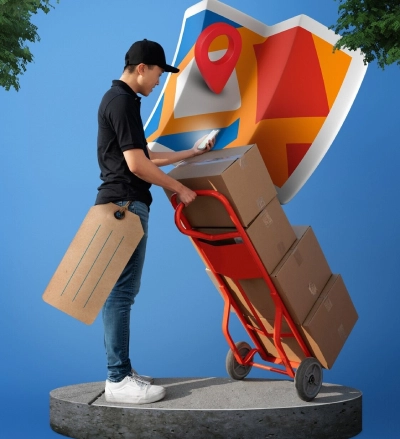What is Last-Mile or Final-Mile Delivery?
Last-mile delivery is the final stage of a product’s journey, transporting it from a warehouse or distribution center to the customer’s doorstep. While this phase is often the most expensive and time-consuming, it is crucial for ensuring customer satisfaction.
Why Is Last-Mile Delivery Important?
- Timely Deliveries: Consumers increasingly expect rapid delivery of their online orders. The rise of services like Amazon Prime, which evolved from two-day to one-day delivery, has set new standards for speed. Achieving this requires careful planning and execution in the last-mile delivery process.
- Cost Efficiency: While consumers demand quick deliveries, businesses must manage logistics costs effectively. Last-mile delivery can significantly impact overall expenses due to factors like fuel and labor. Leaders need to implement cost-effective strategies, such as route optimization and leveraging technology, to maintain efficiency without sacrificing service quality.
- Customer Experience: The last mile is critical for customer satisfaction. Delays or delivery issues can lead to dissatisfaction and harm brand loyalty. Leaders must focus on clear communication and transparency, keeping customers informed about their order status, and providing reliable delivery options to enhance the overall experience.
- Sustainability: As environmental concerns rise, both consumers and businesses prioritize sustainability. Leaders must find a balance between the demand for fast deliveries and eco-friendly practices, such as using electric vehicles, optimizing routes to reduce emissions, and adopting sustainable packaging solutions.
Balancing these priorities—speed, cost, customer experience, and sustainability—is essential for optimizing last-mile delivery and achieving overall logistics success.
Conclusion
In conclusion, last-mile delivery is a vital aspect of the logistics and supply chain process that significantly influences customer satisfaction and overall business performance. As consumer expectations evolve, businesses must prioritize speed, flexibility, transparency, and reliability in their delivery services.
To enhance the customer experience, companies can leverage innovative technologies such as real-time tracking and automated communication. Additionally, focusing on sustainability and personalized service can help differentiate them in a competitive market.
By effectively addressing these expectations and challenges, businesses can strengthen customer relationships, improve operational efficiency, and gain a competitive advantage in the dynamic landscape of last-mile delivery. Ultimately, consistently meeting and surpassing consumer expectations is essential for long-term success and profitability in the logistics sector.
